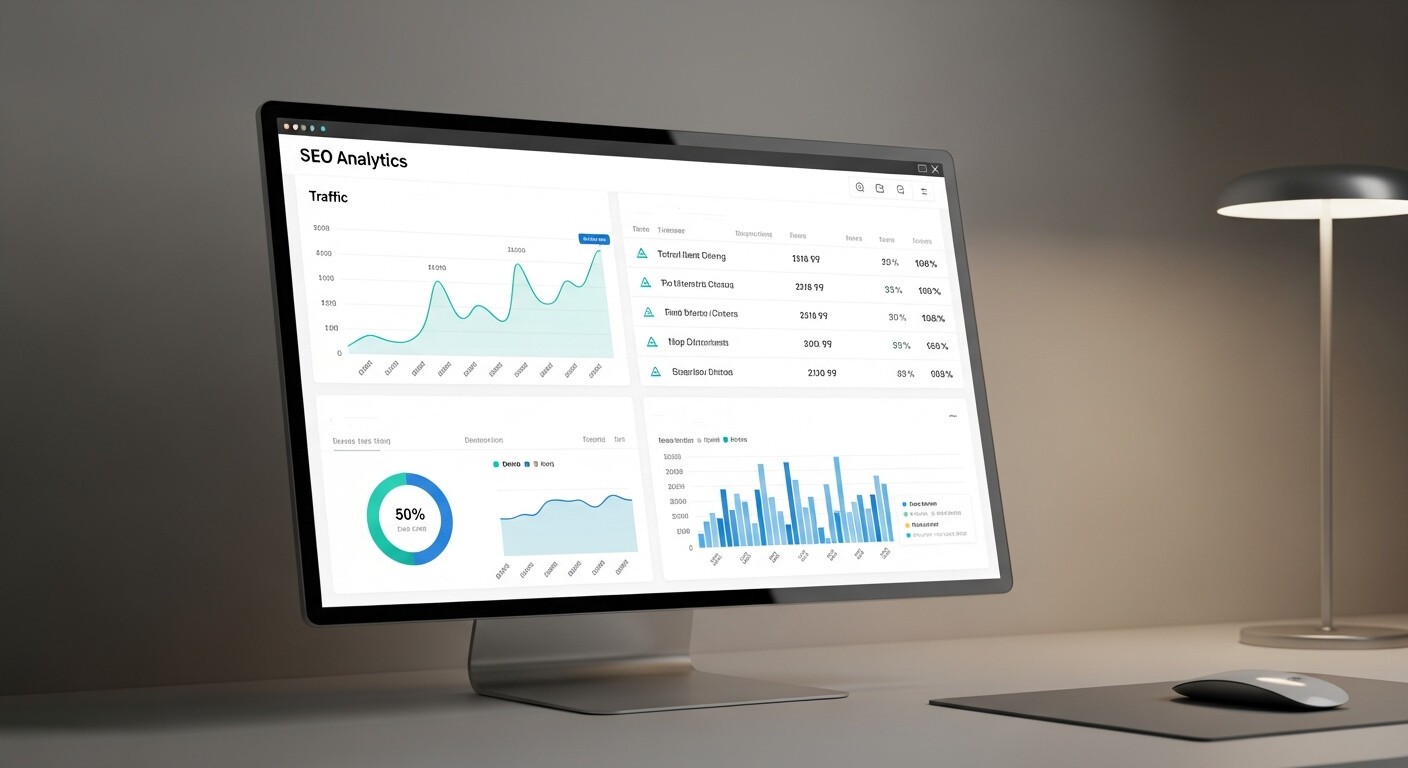KPI Tracking Tools for Marketing help teams turn complex campaign data into actionable insights. These tools monitor performance across channels, identify trends, and optimize strategies for better ROI. Choosing the right platform ensures accurate reporting, seamless integration, and smarter marketing decisions.
Why Marketing KPI Tracking Tools Are Essential
![]()
Marketing teams generate large data daily. Each campaign, e -post, social posts and interaction between websites provide valuable insights. Without proper tracking tools, this data is difficult to fragment and interpret them.
The KPI tracking tools solve this challenge by integrating their most important matrix into action -rich dashboards. They help you identify trends before the problem becomes, recognizes their highest performance campaigns and shows the marketing of Roier to stakeholders.
The primary benefit is outside the organization – it’s all about speed. When your CPI is traced properly and imagined, you can make strategic decisions in minutes instead of hours or days.
All-in-One Marketing Platforms
All-in-one marketing platforms are comprehensive solutions that manage multiple marketing functions while offering robust KPI tracking tools for marketing. These platforms combine campaign management, customer relationship management (CRM), email automation, social media scheduling, and analytics in a single system, making it easier for teams to track, analyze, and optimize performance from one centralized dashboard. By providing built-in KPI tracking tools for marketing, these platforms allow businesses to monitor key metrics across channels, connect marketing efforts to revenue outcomes, and make data-driven decisions faster.
HubSpot
HubSpot is a leading all-in-one marketing platform with powerful KPI tracking tools for marketing built directly into its suite. The platform automatically monitors critical metrics such as lead generation, email campaign performance, social media engagement, and sales pipeline progression. HubSpot’s analytics connect marketing activities directly to revenue outcomes, making it ideal for teams that want to measure the ROI of every campaign.
HubSpot’s free tier provides basic KPI tracking tools for marketing suitable for small teams, while its paid plans unlock advanced analytics, custom reporting, and attribution tracking. The platform works especially well for businesses focused on inbound marketing strategies, allowing marketers to identify high-performing campaigns and optimize content for maximum impact.
Salesforce Marketing Cloud
Salesforce Marketing Cloud offers enterprise-level solutions with sophisticated KPI tracking tools for marketing. It tracks customer journeys across touchpoints and provides predictive analytics via Einstein AI. For more strategies on leveraging data-driven insights in advertising, explore data-driven marketing transforms advertising.
With Salesforce Marketing Cloud, organizations can integrate multiple data sources into a single dashboard, providing a comprehensive view of all marketing KPIs. The platform’s strength lies in its ability to handle large-scale B2B operations, making it a top choice for enterprises that need advanced tracking, reporting, and analytics capabilities.
Dedicated Analytics and Reporting Tools
For businesses that need focused insights, dedicated analytics platforms offer specialized KPI tracking tools for marketing with advanced visualization and reporting capabilities. These tools connect to multiple data sources—such as social media platforms, CRMs, email software, and ad networks—to consolidate metrics into actionable dashboards. By centralizing marketing data, these platforms help teams identify trends, benchmark performance, and make informed decisions that drive growth.
Google Data Studio
Google Data Studio stands out as a free, powerful option for creating marketing dashboards. It connects seamlessly with Google Analytics, Google Ads, Google Search Console, and hundreds of other data sources through connectors.
The platform’s drag-and-drop interface makes it easy to create professional-looking reports without technical expertise. You can track website traffic, conversion rates, social media performance, and advertising ROI all in one place. Google Data Studio’s sharing capabilities make it excellent for team collaboration and stakeholder reporting.
Tableau
Tableau offers advanced data visualization capabilities for organizations with complex reporting needs. While more expensive than other options, Tableau excels at handling large datasets and creating interactive dashboards that allow deep-dive analysis.
The platform’s strength lies in its ability to combine data from multiple sources and create sophisticated visualizations that reveal hidden patterns and trends. Tableau works best for data-driven organizations with dedicated analytics teams.
Microsoft Power BI
Microsoft Power BI provides business intelligence capabilities with strong integration into the Microsoft ecosystem. The platform offers competitive pricing and powerful analytics features, making it attractive for organizations already using Microsoft products.
Power BI’s natural language query feature allows users to ask questions about their data in plain English, making analytics accessible to non-technical team members.
Specialized Social Media Analytics Tools
Social media KPI tracking requires specialized tools that can handle the unique metrics and reporting needs of different platforms.
Hootsuite Analytics
Hootsuite Analytics provides comprehensive social media KPI tracking across all major platforms. The tool tracks engagement rates, follower growth, reach, impressions, and social media ROI. Its strength lies in competitive analysis and industry benchmarking features.
The platform’s team performance tracking helps identify your best content creators and optimize posting strategies across different social channels.
Sprout Social
Sprout Social offers detailed social media analytics with strong team collaboration features. The platform tracks individual post performance, optimal posting times, audience demographics, and engagement trends. Sprout Social’s tagging and categorization features make it easy to track campaign performance across different initiatives.
Buffer Analyze
Buffer Analyze focuses on clean, easy-to-understand social media reporting. The tool tracks essential metrics like engagement rates, reach, and follower growth while providing actionable insights for content optimization.
Email Marketing Analytics Tools

Email marketing requires specialized KPI tracking for metrics like open rates, click-through rates, and subscriber lifecycle management.
Mailchimp
Mailchimp provides built-in analytics for email campaigns with detailed reporting on open rates, click-through rates, bounce rates, and unsubscribe rates. The platform’s automation features include performance tracking for drip campaigns and behavioral triggers.
The platform’s comparative reporting helps identify which subject lines, send times, and content formats perform best for your audience.
ConvertKit
ConvertKit offers creator-focused email analytics with strong segmentation and tagging capabilities. The platform tracks subscriber growth, email performance, and automation effectiveness with detailed reporting on revenue attribution.
Website and SEO Analytics Tools

Understanding website performance and search engine optimization requires specialized tracking tools.
Google Analytics 4
Google Analytics 4 remains the gold standard for website analytics, tracking user behavior, traffic sources, conversion paths, and content performance. SEMrush and Ahrefs specialize in SEO analytics, keyword tracking, and competitor performance.
For businesses exploring digital marketplaces, see NFT secondary market guide for traders.
SEMrush
SEMrush provides comprehensive SEO and content marketing analytics. The platform tracks keyword rankings, organic traffic growth, backlink profiles, and competitor performance. SEMrush’s content audit features help optimize existing content for better search performance.
Ahrefs
Ahrefs specializes in SEO analytics with detailed backlink analysis and keyword tracking. The platform’s Site Explorer tool provides comprehensive insights into organic search performance and content opportunities.
Paid Advertising Analytics Tools
Paid advertising campaigns require specialized tracking for metrics like cost per click, conversion rates, and return on ad spend.
Google Ads
Google Ads provides built-in analytics for search and display campaigns. The platform tracks impressions, clicks, conversions, and cost metrics with detailed attribution reporting.
The platform’s automated bidding strategies use machine learning to optimize campaigns based on your KPI priorities.
Facebook Ads Manager
Facebook Ads Manager offers comprehensive analytics for Facebook and Instagram advertising. The platform tracks reach, engagement, conversions, and audience insights with detailed demographic breakdowns.
Choosing the Right KPI Tracking Tools
Selecting the best tools depends on budget, data integration, team expertise, and reporting needs. Free tools like Google Analytics are sufficient for small teams, while larger organizations may require paid solutions with advanced features. Integration with existing platforms and clear reporting schedules are crucial. For guidance on measuring ROI, refer to data-driven marketing ROI: how to measure.
Budget Considerations
Free tools like Google Data Studio and Google Analytics can handle most small business needs. However, paid tools often provide better customer support, advanced features, and higher data limits.
Consider your total cost of ownership, including setup time, training requirements, and ongoing maintenance, when evaluating options.
Data Integration Requirements
When selecting spreadsheet automation tools, it’s crucial to evaluate how seamlessly they integrate with your existing marketing and business platforms. Native integrations—those built directly by the software provider—tend to be more reliable and stable, reducing the likelihood of synchronization issues or broken connections. They also often require less ongoing maintenance compared to third-party connectors, which can be more prone to compatibility problems and may need frequent updates or troubleshooting. Consider the full ecosystem of tools you use, such as CRM systems, email marketing platforms, analytics software, and cloud storage solutions, to ensure your automation tool can pull and push data across all relevant systems efficiently. The smoother the integration, the more accurate and timely your reports and analyses will be.
Team Size and Technical Expertise
Another key factor in choosing a spreadsheet automation solution is your team’s size and technical capabilities. Some advanced tools require coding knowledge or experience with scripts and APIs to set up, configure, and maintain workflows. Smaller teams or non-technical users may struggle with these options, which can lead to implementation delays or errors. Conversely, many modern automation platforms offer intuitive, user-friendly interfaces with drag-and-drop features, pre-built templates, and guided workflows, allowing team members with minimal technical expertise to create and manage automated processes effectively. Assess your team’s skill set and capacity to determine whether you need a tool that prioritizes ease of use or one that offers maximum customization and power.
Reporting Needs
Understanding your reporting requirements is essential for maximizing the value of automation. Different stakeholders have different expectations: executives may require high-level dashboards that summarize key metrics across campaigns, departments, or business units, while marketing managers might need detailed operational reports that track daily performance, lead generation, and conversion rates. Additionally, consider the frequency of reporting—real-time dashboards can provide instant insights, whereas weekly or monthly reports may suffice for long-term trend analysis. By clearly defining who will use the reports, what insights they need, and how frequently, you can select automation tools that generate relevant, actionable reports without overwhelming your team or creating unnecessary complexity.
Implementation Best Practices
Start with Clear Objectives
Define goals before selecting KPI tracking tools for marketing. Are you improving lead generation, customer lifetime value, or ad spend efficiency? Well-defined objectives help prioritize actionable KPIs. See how to master data-driven decision-making for strategic insights.
Focus on Actionable Metrics
When using KPI tracking tools for marketing, it’s important to focus on metrics that directly influence decision-making. While website traffic and social media impressions are informative, metrics like conversion rates, cost per acquisition, and customer retention rates provide actionable insights that can drive growth. By concentrating on actionable KPIs, your team can make data-driven decisions that improve ROI, optimize campaigns, and support strategic marketing initiatives.
Ensure Data Accuracy
Reliable insights depend on accurate data. Implementing proper tracking codes, UTM parameters, and conversion tracking is critical when using KPI tracking tools for marketing. Inaccurate or inconsistent data can lead to misguided decisions, wasted budget, and missed opportunities. Ensuring data integrity allows your analytics platform to provide trustworthy reports and supports confident, informed decision-making across your marketing operations.
Create Regular Reporting Schedules
Consistent reporting is key to maximizing the value of KPI tracking tools for marketing. Establish a rhythm that suits different stakeholders—weekly operational reports for marketing managers, monthly performance reviews for executives, and quarterly strategic assessments for leadership teams. Regular reporting ensures that your team stays aligned, performance trends are visible, and corrective actions can be taken in a timely manner.
Train Your Team
Even the most powerful KPI tracking tools for marketing are ineffective if your team doesn’t know how to use them properly. Invest in training programs to ensure team members understand how to access dashboards, interpret metrics, and generate reports. When staff are confident in using the tools, they can extract actionable insights, optimize campaigns, and contribute to more informed, data-driven marketing strategies.
Common Implementation Challenges

Data Silos
Many organizations struggle with disconnected data sources. Address this by prioritizing tools with strong integration capabilities or investing in customer data platforms that unify information from multiple sources.
Analysis Paralysis
Too many metrics can overwhelm decision-makers. Focus on 5-10 key metrics that directly impact business objectives rather than trying to track everything.
Inconsistent Tracking
Ensure consistent UTM parameter usage, naming conventions, and measurement definitions across all campaigns and channels.
Transform Your Marketing with Better KPI Tracking
The correct combination of the CPI tracking tool makes marketing an estimated profit. Start with free tools like Google Analytics and Google Data Studios to establish basic tracking, then add special equipment to grow your requirements.
Remember that the equipment is only as valuable as those who produce insight and who inspire actions. Focus on tracking Matrix who runs business decisions, ensures data accuracy and cabinets regularly reporting rhythm that keeps your team to coordinate on performance.
The success of your marketing depends on measuring it. Choose tools to fit your budget, integrate with their existing systems, and give your team to make smart decisions every day.
Frequently Asked Questions (FAQ)
What are marketing KPI tracking tools?
Marketing KPI tracking tools are platforms that collect, organize, and visualize key performance indicators across marketing channels. They help teams measure performance, identify trends, and make data-driven decisions.
How many KPIs should a marketing team track?
Most teams perform best when tracking between five and ten core KPIs aligned with business objectives. Tracking too many metrics can create confusion and reduce focus.
Are free KPI tracking tools good enough for businesses?
Free tools like Google Analytics and Google Data Studio are sufficient for many small and mid-sized businesses. However, larger organizations often require paid tools for advanced reporting, automation, and data integration.
How often should marketing KPIs be reviewed?
Operational KPIs should be reviewed weekly or even daily, while strategic KPIs are typically reviewed monthly or quarterly. The review frequency should match the decision-making needs of the team.
What is the biggest mistake teams make with KPI tracking?
The most common mistake is focusing on vanity metrics that look impressive but do not drive business outcomes. Effective KPI tracking prioritizes actionable metrics tied to revenue, growth, and efficiency.
Can one tool track all marketing KPIs?
Some all-in-one platforms can cover many needs, but most organizations benefit from a combination of tools. Website analytics, CRM data, advertising platforms, and social analytics often need to be connected for a complete view.
How do KPI tracking tools improve marketing ROI?
By identifying what works and what doesn’t, KPI tracking tools help marketers allocate budgets more effectively, optimize campaigns faster, and reduce wasted spend.
Leave a Reply